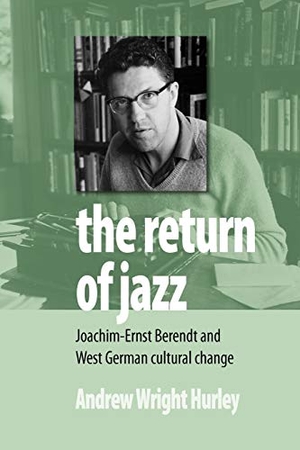Für statistische Zwecke und um bestmögliche Funktionalität zu bieten, speichert diese Website Cookies auf Ihrem Gerät. Das Speichern von Cookies kann in den Browser-Einstellungen deaktiviert werden. Wenn Sie die Website weiter nutzen, stimmen Sie der Verwendung von Cookies zu.
Cookie akzeptieren
- Berghahn Books
- 2011
- Taschenbuch
- 322 Seiten
- ISBN 9780857451620
"In The Return of Jazz, Andrew Wright Hurley has admirably demonstrated Berendt's influence upon the emerging jazz scene of the early Federal Republic. Hurley shows how Cold War politics and rejection of the National Socialist past heightened Berendt's sense of mission. For Berendt, jazz was more than an avocation; it was a program for social and cultural reform. It is to Hurley's credit that he raises so many important issues surrounding jazz's development in the second half of the twentieth century." - H-German "This is a benchmark study, in showing why a subject that has been overlooked in jazz historiography should not have been. Its importance lies not just in recognising the importance of a major mediator and 'enabler' of postwar jazz; it also models the late twentieth century shift of the jazz centre of gravity away from the US and towards international fusions. In its balancing of cultural theory with the most painstaking empirical research this is, quite simply, essential reading not just in jazz scholarship, but in the larger field of cultural history and its methodologies." - Bruce Johnson Cultural History, University of Turku Jazz has had a peculiar and fascinating history in Germany. The influential but controversial German writer, broadcaster, and record producer, Joachim- Ernst Berendt (1922-2000), author of the world's best-selling jazz book, labored to legitimize jazz in West Germany after its ideological renunciation during the Nazi era. German musicians began, in a highly productive way, to question their all-too-eager adoption of American culture and how they sought to make valid artistic statements reflecting their identity as Europeans. This book explores the significance of some of Berendt's most important writings and record productions. Particular attention is given to the "Jazz Meets the World" encounters that he engineered with musicians from Japan, Tunisia, Brazil, Indonesia, and India. This proto-"world music" demonstrates how some West Germans went about creating a post-nationalist identity after the Third Reich. Berendt's powerful role as the West German "Jazz Pope" is explored, as is the groundswell of criticism directed at him in the wake of
Mehr
Weniger
zzgl. Versand
Etwa 20 Tage